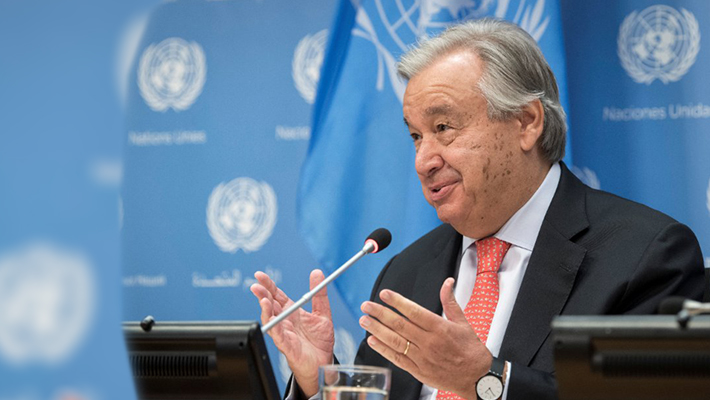By Asmau Ahmad
United Nations Secretary-General, António Guterres, on Monday presented his priorities for 2023 to the General Assembly, urging the Member States to act decisively on global crisis.
In his speech to General Assembly in New York, Guterres appealed for urgent action to achieve peace, economic rights and development, climate action, respect for diversity, and inclusive societies – both today and for generations to come.
Before unfolding his 2023 roadmap, the secretary-general extended condolences to the families of the victims of the devastating earthquakes in Türkiye and Syria, adding that the UN is mobilising to support the response.
Guterres stressed the need for transformation in 2023, grounded in the UN Charter and the Universal Declaration of Human Rights.
“As we look to priorities for this year, a rights-rooted approach is central to achieving our ultimate priority: a safer, more peaceful, more sustainable world,” he said.
The secretary-general said his message for leaders was: “don’t focus solely on what may happen to you today – and dither. Look at what will happen to all of us tomorrow – and act.”
He then outlined how the Member States could transform the society by being guided by the UN Charter and the Universal Declaration of Human Rights.
On the Russian invasion of Ukraine, Guterres said he feared the world was sleepwalking into a wider war and it was doing so with its eyes wide open, and added that, “we must work harder for peace everywhere.”
He also called on nuclear-armed countries to renounce the first use of these weapons, saying their “tactical” use of nuclear weapon is an absurdity.
On development, he said, “it’s time for a new Bretton Woods moment, with a new commitment to place the needs of developing countries at the centre of every decision and mechanism of the global financial system.”
And on climate, he said this year was one of reckoning and was clear that there could be no more baby steps, excuses or greenwashing.
The UN chief said action was possible, however, politicians and decision makers lacked the strategic vision to see beyond the short term.




